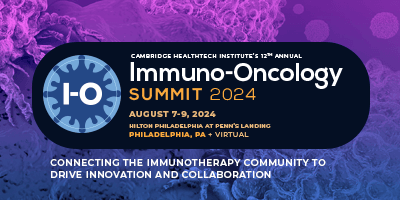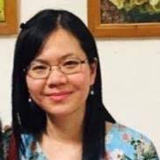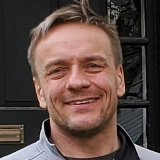演讲者
Filter by:
Nicole Afacan, PhD, Principal Scientist, Therapeutics Research, Zymeworks Inc

Nicole Afacan is a Principal Scientist in Zymeworks’ Multispecific Antibody Therapeutics group, focused on developing new antibody-based therapeutics that have the potential to harness the body’s immune system to treat various cancers. Since joining Zymeworks in 2016, she has led several research programs including the pre-clinical development of ZW171. She received her Ph.D. from the University of British Columbia, Canada.
Abdullah Al-Omari, PhD, Scientist, T Cell Vaccine, Scancell Ltd.
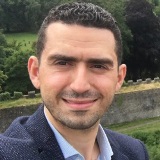
Dr. Abdullah Al-Omari received his PhD in Cancer Immunology at the Nottingham Trent University in 2019. He joined UK Biotech company Scancell Ltd after his PhD training and is currently an immuno-oncology scientist and a member of the vaccine research team. He has 7 years' research and industry experience in the field of cancer immunotherapy and has contributed to the publication of 6 original manuscripts.
Robert Anders, MD, PhD, Associate Professor, Pathology, Johns Hopkins University
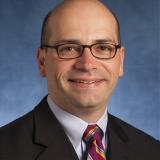
Dr. Robert A. Anders earned his medical and Molecular Biology graduate degrees at Mayo Medical and Graduate School. He completed his Anatomic and Clinical Pathology residence, fellowship in Gastrointestinal and Liver Pathology, postdoctoral training in Immunology and Instructor of Pathology at the University of Chicago. He joined the faculty at Johns Hopkins School of Medicine in 2005 as an Assistant Professor in Division of Gastrointestinal and Liver Pathology and now is an Associate Professor of Pathology. He also serves as co-director of the Tumor Microenvironment Laboratory in the Bloomberg~Kimmel Institute for Immune Cancer Therapy. In addition to his duties as a practicing GI/Liver surgical pathologist, Dr. Anders runs an independently funded research lab that focuses on tumor immunology. His interest in Immunology developed while he studied liver immunology and regeneration while at the University of Chicago and the early years of this position at Johns Hopkins. His current interests are in tumor immunology and specifically interrogating the immune microenvironment in tumor tissue. He first began examining human tissue for the expression of PD-1 / PD-L1 in 2006, at the encouragement of his K08 mentor Dr. Lieping Chen. He continues research in human and murine cancer immunology using single and multiple color immunostaining coupled to digital image analysis.
David Anderson, PhD, CSO, Research & Development, VBI Vaccines, Inc.
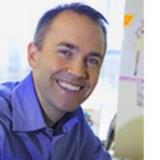
A dynamic and well-published immunologist with broad expertise in the areas of vaccine development, autoimmunity and tumor immunology, Dr. Anderson joined VBI full time in 2009 from Harvard Medical School, where he held a position as Assistant Professor. As a co-founder and Chief Scientific Officer of VBI, Dr. Anderson is an inventor of much of the Company’s intellectual property and actively manages its ongoing expansion. Dr. Anderson holds a Ph.D. from Harvard University and a B.S. from the University of California at Davis.
Lionel J. Apetoh, PhD, Professor, Microbiology & Immunology, Indiana University
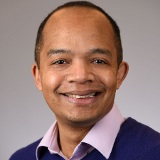
Dr. Lionel Apetoh earned his Ph.D. in immunology in 2008 from the University of Paris XI. At Indiana University (IU), Dr. Apetoh is the Christopher Brown Professor of Immunology and the director of the Brown Center for Immunotherapy Immune Monitoring Core. Prior to joining IU, Dr. Apetoh held positions at Harvard University and at INSERM (French Institute of Health and Medical Research). Dr. Apetoh’s current research focuses on the relationship between T lymphocytes and anticancer immune responses. He has authored over 120 publications on this topic.
Sean P. Arlauckas, PhD, Associate Director, Cell Therapy Platform, Be Biopharma Inc.

Sean earned his BSE in Biomedical Engineering at Case Western Reserve U. At University of Pennsylvania's Perelman School of Medicine, he completed a PhD in Cancer Pharmacology and filed a patent that’s served as the foundation for a stealth-mode fluorescence-guided surgery start-up. He published several high-impact immune-oncology manuscripts & patents during his Postdoctoral Research Fellowship in the lab of Dr. Ralph Weissleder at Mass General / Harvard Medical School’s Center for Systems Biology. At KSQ, Sean built the transcriptomics platform and served as Biology Lead on an Autoimmune biotherapeutics program. He was hired by a venture capital firm as Be Bio’s 1st employee in October 2020 and has established the R&D platform with the help of Be’s founders and early hires. He’s now steering Be’s Oncology team and continues to drive innovation in the B cell culture process.
Philip Arlen, MD, President & CEO, Precision Biologics
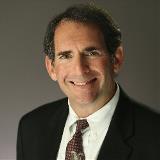
Dr. Arlen has served as CEO of Precision Biologics since 2012. Prior to this, he spent 11 years at the National Cancer Institute, U.S., most recently as the Director of the Clinical Research Group for the Laboratory of Tumor Immunology and Oncology. At the NCI, Dr. Arlen focused on the development of a programmatic approach to vaccine clinical trials conducted at the NCI, as well as at numerous other cancer centers throughout the U.S. During his tenure at the NCI, Dr. Arlen was the Principal Investigator and/or Associate Investigator on numerous clinical trials involving the use of cancer vaccines and other immunostimulatory molecules. Dr. Arlen remains on the clinical staff at both the NCI Clinical Center, as well as the Walter Reed National Military Medical Center (formerly known as the National Naval Medical Center). Dr. Arlen has also served in the role of Chairman of the Institutional Review Board (IRB) for the National Cancer Institute and continues to serve as a Co-Chair for the NIH IRB. In addition, he has served on the Integration Panel for the Department of Defense Congressionally Directed Medical Research Program, Prostate Cancer Research Program from 2008 through 2018, chairing the committee in 2013. He has authored or co-authored over 100 peer reviewed manuscripts in internationally known scientific and medical journals. Dr. Arlen received an NIH Award of Merit for major contributions to the field of cancer immunotherapy in 2003. He is a board certified medical oncologist and received his B.A. from Emory University and his M.D. from Medical College of Georgia.
Tony R. Arulanandam, DVM, PhD, Senior Vice President and Head R&D, Cytovia Therapeutics, Co-Founder NextPoint Therapeutics
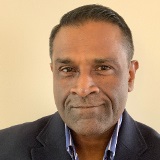
Tony Arulanandam, DVM, PhD, Senior Vice President and Head of Preclinical Research and Development at Cytovia Therapeutics focused in developing NK Cell engager bispecific antibody and iPSC derived CAR-NK therapies for cancer. He is also the Co-Founder of NextPoint therapeutics, an MPM capital-funded IO checkpoint immunotherapy company. He is an immunologist with 20+ years of research and development experience developing multiple immunotherapies for autoimmune/inflammatory diseases and cancer (5 BLAs and multiple INDs). He is also currently a mentor for postdocs at the Dana-Farber Cancer Institute through the post-graduate association.
Shahin Aslam, Associate Principal Scientist, Merck

Shahin Aslam is a translational immunologist with expertise in deep profiling of diseased human tissue to interrogate the heterogeneity of immune cell subsets using high dimensional flow cytometry, single cell genomics, and proteomics. She is currently an Associate Principal Scientist at Merck at their South San Francisco location and is involved in utilizing human tissue-based approaches and ex vivo platforms to evaluate mechanism of action of immuno-oncology therapeutics, contribute to target identification and discovery of clinical biomarkers.
Nir Chetrit, PhD, Associate Researcher, Weill Cornell Medicine
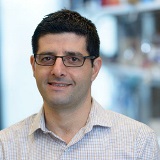
Dr. Ben-Chetrit is a research associate in Medicine at Weill Cornell Medicine and the New York Genome Center. His research interests are geared toward developing novel frameworks for innate immuno-oncology and cancer vaccines in poorly immunogenic cancers. Nir did his Ph.D. at the Weizmann Institute of Science, targeting the cell-intrinsic mechanisms that propel metastasis of cancer cells in patients with triple-negative breast cancer (TNBC). He identified a novel metastasis driver that is amplified in breast cancer patients and identified small molecules that inhibit its activity in vivo. His current work focuses on overcoming immune evasion mechanisms by tumor-infiltrating myeloid cells, primarily through genetic reprogramming of immunosuppressive TAMs into immunostimulatory macrophages in the tumor microenvironment of breast and ovarian cancers.
Robert Benson, PhD, R&D, Antibody Analytics Ltd.

Director of Immunology at AA since 2020, holds a PhD in Immunology from the University of Edinburgh. With 20+ years in the field, he published 40+ papers, 2 book chapters, and lectured extensively on dynamic immune interactions. As a University of Glasgow Research Affiliate, his studies emphasize the importance of how innate, adaptive & host tissue interactions contribute to beneficial & detrimental outcomes in a range of immune settings.
Philip E. Brandish, PhD, Senior Vice President, Immuno-Oncology, Bicycle Therapeutics
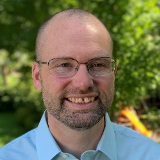
Biotech research leader focused on bringing innovative new medicines to cancer patients. Immunology, oncology, and drug discovery subject-matter expert with >20 years' experience across a range of drug modalities and from target ID through clinical POC. Extensive successful track record of building great teams, promoting rigorous science, and delivering on the pipeline. Currently Senior Vice President of immuno-oncology at Bicycle Therapeutics, a platform company focused on constrained peptides. Formerly a Director of Oncology Discovery research at Merck & Co.
Ivone Bruno, PhD, Vice President, Preclinical Affairs and Process Development, Cytoimmune Therapeutics

Dr. Bruno is the V.P. of Preclinical and Process Development at CytoImmune Therapeutics, a clinical-stage cell therapy company with manufacturing, process/analytical development capabilities focusing on novel cancer immunotherapy products with a robust NK platform. Dr. Bruno has over 25 years of combined experience in drug development of cellular (CAR-T, TCR, CAR-NK, Treg, MSCs, CD34, iPSCs), viral, and nucleic acid (plasmid and mRNA) and leading translational programs from the bench to a pre-commercialization stage. Her experience brings an in-depth knowledge of the FDA regulations, industry standards and practices for the manufacturing and testing for safety, potency, integrity, and impurities of cell therapies. Dr. Bruno has previously worked for cell therapy focused companies such as Bellicum Pharmaceuticals, Invectys, and Lonza, Houston, where she led the process and analytical development of various autologous and allogeneic cell therapies. Dr. Bruno holds a PhD from the University of Texas and M.D. Anderson Cancer Center in Houston, Texas and two postdoctoral appointments in human genetics and neuroscience at M.D. Anderson Cancer Center and Baylor College of Medicine, respectively.
Jian Cao, PhD, Assistant Professor, Pathology, Rutgers Cancer Institute
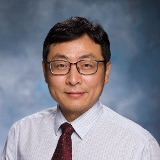
Dr. Jian Cao is an Assistant Professor of Medicine at Rutgers Cancer Institute. He directs a research laboratory to elucidate the roles of epigenetic mechanisms that regulate anti-tumor immune response and to translate the findings to the clinic. Dr. Cao received his B.S. degree through an Interdisciplinary Program, at Nanjing University and China Pharmaceutical University, China. He received a Ph.D. degree from the Shanghai Institute of Biochemistry and Cell Biology, Chinese Academy of Sciences, China. He completed his postdoctoral training on cancer epigenetics with Dr. Qin Yan at Yale School of Medicine. He has made significant contributions to the understanding of the functions of KDM5 histone demethylases in cancer development, metastasis, drug resistance, and immune escape.
Alessandra Castiglioni, PhD, Scientific Manager, Cancer Immunology, Genentech Inc.
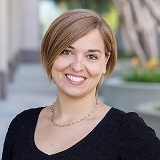
Alessandra Castiglioni, Ph.D., is a medical researcher specializing in molecular medicine and cellular and molecular biotechnology. Her academic journey began at the Università Vita-Salute San Raffaele in Milano, Italy, where she earned her Bachelor's, Master's, and Ph.D. degrees. During her doctorate studies, she spent time conducting research both in Italy and in the United States as a visiting student at Harvard University. Her research focused on gaining insights into skeletal muscle regeneration involving human satellite cells and T regulatory cells. In 2015, she joined Genentech, and currently holds the position of Senior Scientific Manager in the Cancer Immunology Department. Her current research primarily revolves around deepening the understanding of the TGFß pathway biology within the context of cancer immunotherapy. In her role, she has successfully led research teams into Early Development Stage programs. Prior to her tenure at Genentech, Dr. Castiglioni served as a Post-doctoral Fellow at Harvard University where she further explored the fields of skeletal muscle regeneration and stem cell biology. Her published works have significantly contributed to these fields. Dr. Castiglioni's work is driven by her passion for unraveling biological complexities and her commitment to pioneering impactful research.
Nikki Cerniuk, Conference Producer, Cambridge Innovation Institute
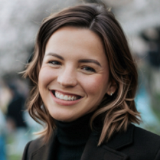
Nikki Cerniuk has a background in T cell therapy research. She enjoyed the science, but wanted to lend herself to broader applications that offered more opportunities for collaboration. She joined Cambridge Heathtech Institute as a Conference Producer in 2022. Her love of continuous learning, science, and communication proved her to be a excellent complement to the role. Nikki graduated summa cum laude from the University of South Florida with a degree in Cell and Molecular Biology.
An-Ping Chen, PhD, Associate Director, R&D, Cytovia Therapeutics
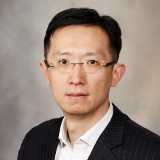
Dr. Chen obtained his Ph.D. degree from the Chinese Academy of Sciences and enjoyed the post-doctoral period at the Mayo Clinic. He successfully generated the nbce1A isoform-specific KO mice to mimic the pRTA and glaucoma patients with Q29X mutation, and thus earned a career development award at the Mayo Clinic. By now, he has published more than 20 research papers and meeting abstracts in highly impacted journals such as Molecular Aspects of Medicine, The Lancet Neurology, and Human Mutation. In industry, he is skilled at CAR-design, KI & KO by non-viral strategies with TALEN, CRISPR-Cas9, CRISPR-AsCas12(MAD7); or the retrovirus & lentivirus transduction in mammalian cells & iPSC cells, and its related process development. He successfully built up a genome-editing iPSC platform and developed its enhanced iPSC-derived NK cells against tumor cells. Dr. Chen is experienced in leading a gene-editing team to achieve pre-clinical cell therapy milestones in drug discovery.
S. Chakra Chennubhotia, Chief of AI, COO, & Co-Founder, PredxBio, Inc.
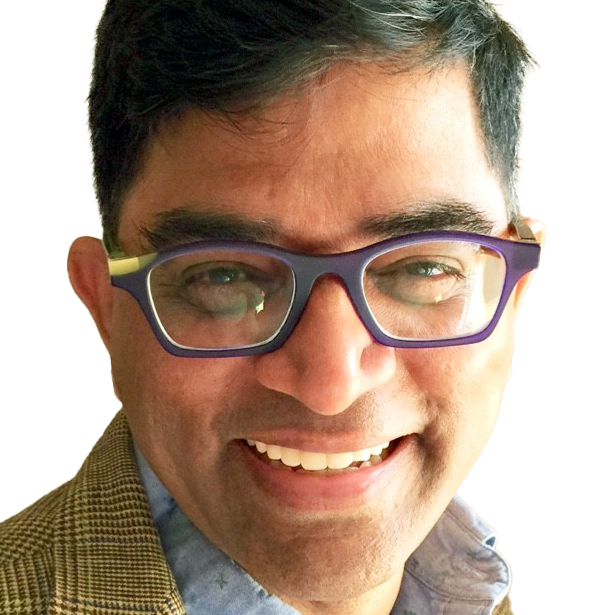
Chakra earned his PhD from the Department of Computer Science at the University of Toronto specializing in computer vision, machine learning and AI. Chakra was tenured Associate Professor in the Department of Computational and Systems Biology at the University of Pittsburgh.
Chakra co-founded PredxBio (fka. SpIntellx) to actualize the translational potential of these Pitt IP-fueled platforms. Chakra’s experience encompasses years in both industry and academia. He was the lead PI on several National Institutes of Health and National Science Foundation grants covering broad areas of bioimaging, molecular biophysics, computational and systems biology, and spatial intratumor heterogeneity. He holds several patents and has published extensively, appearing in Science Translational Medicine and Nature Communications, among other prominent journals.
Starlynn Clarke, PhD, Director, Preclinical Biology, Rondo Therapeutics
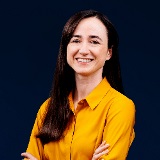
Starlynn Clarke leads the preclinical biology group at Rondo Therapeutics, an IO-focused biopharmaceutical company developing innovative bispecific therapeutic antibodies for treating solid tumors. Starlynn has worked in discovery and preclinical development in the fields of oncology and immunology at several biotechnology start-up companies, including Frontier Medicines and Caribou Biosciences. As a founding member of the preclinical biology team at Teneobio, a highly successful multispecific therapeutic antibody company, she contributed to several bispecific antibody programs currently in clinical trials. Starlynn completed her PhD in the lab of Charles Craik at UCSF, where she studied novel viral and fungal host-pathogen interactions.
Ivan J. Cohen, PhD, Postdoc Researcher, Hematology & Oncology, University of Pennsylvania
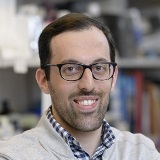
Dr. Cohen is a postdoctoral research fellow with a keen interest in the immune system and leveraging its power for therapeutic purposes. He received his PhD from Memorial Sloan Kettering Cancer Center and is currently a postdoctoral research fellow at the laboratory of Dr. Marco Ruella at the University of Pennsylvania. His interests include the role of solid tumor metabolism and its contributions to immune suppression, and the development of next-generation CAR T cell therapies for leukemia/lymphoma.
Julia A Coronella, PhD, VP Immuno Oncology, Immuno Oncology, Poseida Therapeutics Inc
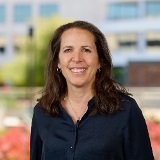
Dr. Coronella is the Vice President of Immuno-Oncology at Poseida Therapeutics, and has been at Poseida since 2019. She leads Immuno-Oncology nonclinical research for Poseida CAR-T, inclusive of pipeline drug discovery and optimization, as well as research to leverage Poseida’s proprietary gene editing and gene delivery platforms for cell therapy. Before joining Poseida, she held positions at Tanabe Research Laboratories, Pfizer, Biogen Idec, and was assistant research professor at the University of Arizona. Dr. Coronella received her PhD from the University of South Florida and did her postdoctoral studies at Harvard Medical School.
George Coukos, MD, PhD, Director, Department of Oncology, Lausanne University Hospital, and Director, Ludwig Institute for Cancer Research Lausanne Branch, University of Lausanne
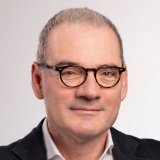
Prof. Dr. George Coukos is Full Professor at the Faculty of Biology and Medicine in Lausanne, Director of the Department of Oncology at the University Hospital (CHUV) and University of Lausanne (UNIL), and Director of the Ludwig Institute for Cancer Research Lausanne Branch. He is also the Head of Immuno-Oncology at CHUV. A leading investigator in the field of tumor immunology and ovarian cancer, he is the PI of many early-phase clinical studies in cancer immunotherapy. Furthermore, he is interested in elucidating fundamental mechanisms in the tumor microenvironment (TME) that determine the fate of antitumor immunity, focusing on the study of the deregulation of tumor-infiltrating lymphocytes (TILs). These studies are expected to yield novel pharmacologic approaches to restore antitumor immunity as well as novel methodologies to select and expand TILs for adoptive therapy. He is also involved in the study of the tumor vasculature as a barrier to effective T cell infiltration in many tumors, but also as a potential target for therapy. Prof. Coukos is pursuing T cell engineering approaches as a means to address the deregulation of T cells in the TME, and for redirecting them against relevant tumor targets, including the vasculature, with the ultimate goal of translating basic discovery to the clinic.
Edna (Eti) Cukierman, PhD, Marvin & Concetta Greenberg Chair in Pancreatic Cancer Research; ACS Wilmott Family Professor of Pancreatic Cancer-Tumor Microenvironment Lab, Fox Chase Cancer Center
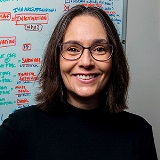
Born and raised in Mexico City, Edna (Eti) Cukierman immigrated to Israel in 1986 and earned her doctoral degree from the Technion-Israel Institute of Technology in 1997. Her research in extracellular matrix (ECM) biology began with a Postdoctoral Fellowship, at the NIH-NIDCR. It was during this time that she developed the multilayered fibroblastic cell-derived ECM (known as the CDM) system, demonstrating that fibroblastic cells and self-generated matrix constitute “a functional unit.” Today, CDMs are broadly used in research, as they allow the long-term culture of single and mixed cell populations while mimicking discrete in vivo interstitial/stroma niches. Cukierman joined the Fox Chase Cancer Center Faculty in 2002. Her research focuses on defining the critical roles of stromal cells (mostly pancreatic fibroblasts, but also immune cells, nerves, and others) in generating ECM-dependent signals that together promote and constrain tumorigenesis, and on understanding how the fibroblastic/ECM functional units sustain the normal and/or perturbed pancreatic homeostasis. She is currently a Tenured Full Professor, the ACS Wilmott Family Professor of Pancreatic Cancer Research, the M&C Greenberg Chair in Pancreatic Cancer Research, Head of the Tumor Microenvironment Lab., and Co-Leader of the Cancer Signaling & Microenvironment Program. While her independent work involves cell biological and bio-engineering approaches to science, she also Directs the Spatial Immuno-Proteomics and Imaging AI Initiatives at the Cancer Center (part of the Histopathology Facility), which support clinical and pre-clinical operations. Cukierman, also serves as the Co-Director of the Fox Chase Cancer Center’s translational and multidisciplinary Marvin & Concetta Greenberg Pancreatic Cancer Institute. Finally, she is Internationally recognized in the Tumor Microenvironment field, as attested by being recently voted by her professional peers as the AACR’s Tumor Microenvironment Working Group Chair (2024-2026).
Michael A. Curran, PhD, Founder and SAB Chairman, ImmunoGenesis; Associate Professor, Immunology, MD Anderson Cancer Center
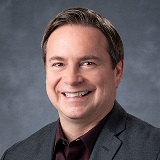
Dr. Curran received a Ph.D. in Immunology from Stanford University where he was awarded the McDevitt prize for the best graduate thesis in his year. Dr. Curran was the first recipient of the prestigious American Cancer Society Levy Fellowship to fund his postdoctoral studies in the lab of Dr. James P. Allison. While pursuing his postdoctoral studies at Memorial Sloan-Kettering Cancer Center, Dr. Curran published several influential manuscripts describing how T cell co-stimulatory pathways could be modulated in tandem to mediate immunologic rejection of melanomas in mice. Dr. Curran was the first to describe how combination blockade of the T cell co-inhibitory receptors CTLA-4 and PD-1 promoted the rejection of a majority of murine melanomas - a combination that remains the most effective FDA-approved immunotherapy. At the MD Anderson Cancer Center, Dr. Curran is an Associate Professor of Immunology and his Lab seeks to discover the underlying mechanisms of immune resistance in the “coldest” tumors, pancreatic and prostate adenocarcinoma and glioblastoma, so that rational therapeutic interventions can be developed to restore T cell infiltration and sensitivity to T cell checkpoint blockade. This research focuses on normalization of tumor oxygen metabolism to increase T cell metabolic fitness, activation of innate pro-inflammatory immune sensors capable of re-programming tumor myeloid stroma, and on discovery of novel immune checkpoint antibodies capable of depleting stromal elements responsible for T cell exclusion and function suppression.
Marion Curtis, PhD, Assistant Professor, Immunology, Mayo Clinic
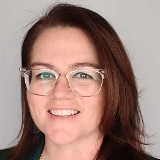
Dr. Marion Curtis is an Assistant Professor of Immunology at the Mayo Clinic in Scottsdale, AZ, with dual appointments in Immunology and Cancer Biology. Her research focuses on the understanding how the tumor microenvironment influences immune cell metabolism, how the DNA damage response intersects with anti-tumor immunity, and the use of immunopeptidomics for antigen discovery, with a specific focus on ovarian cancer. She did her graduate work and postdoctoral training at the University of Chicago and began her independent career at Mayo Clinic in 2018. Her work has been published in many top journals including Cell, Cell Metabolism, and the Journal of Immunotherapy in Cancer. She is the recipient of multiple awards including from the Ovarian Cancer Research Alliance, she is a current member of the Department of Defense Ovarian Cancer Academy, and she has recently received a R37 MERIT Award from the National Cancer Institute.
Diwakar Davar, MD, Associate Professor, Medicine, University of Pittsburgh
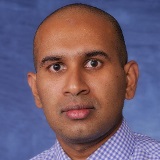
I am a translational medical oncologist clinically focused on melanoma, cutaneous SCC and drug development. The clinical and translational efforts of our group centers around investigating the following scientific areas: a) The role of the intestinal microbiome in mediating response/resistance to PD-1 immune checkpoint blockade. b) The role of TLR9 agonism in synergy with PD-1 blockade. c) Evaluating novel immune checkpoint blockades in particular TIM-3, TIGIT in patients. To study these areas, I design clinical trials to test these approaches in the context of novel studies in patients with advanced cancers. Highlights include: a) High pathologic response rate when TLR9 agonist CMP-001 is combined with PD-1 inhibitor Nivolumab. -Preliminary data demonstrating high pathologic response rate with compelling evidence of immune activation intra-tumorally and peripherally have been presented (Davar D, SITC 2019 and SITC 2020) and pending publication. b) Microbiome modulation resensitizes primary refractory melanoma patients to pembrolizumab. -First-in-human approach demonstrating that responder-FMT reverses resistance to anti-PD-1 in PD-1 R/R melanoma (NCT03341143). -Response is associated with rapid engraftment of donor microbiome and augmented circulating and intra-tumoral adaptive and memory immune responses. -This has since been published in Science (doi: 10.1126/science.abf3363). -We are working to extent the scope of this in melanoma and other solid malignancies. c) First in human trials of TIGIT, TIM-3. Our research has been published, presented and discussed at multiple national and international meetings. Follow @diwakardavar for updates.
Peter C. DeMuth, PhD, CSO, Elicio Therapeutics
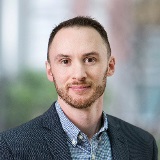
Dr. Pete DeMuth is a founding scientist at Elicio and currently serves as Chief Scientific Officer, leading the development of technology platforms for cancer immunotherapeutics from early research to clinical development. To this role, he brings over 15 years of experience in oncology, immunology and materials science. Prior to joining Elicio, Pete oversaw efforts to develop novel technologies for immunotherapy and vaccine development at the Massachusetts Institute of Technology’s Koch Institute for Integrative Cancer Research in affiliation with the Ragon Institute of Massachusetts General Hospital, MIT, and Harvard University, where he received recognition from the National Institutes of Health and the American Chemical Society. In 2015, Pete received the Quadrant Award from Quadrant AG, a global manufacturer and innovator in polymer materials science, for research he completed while at the Koch Institute at MIT. Pete has also been an NIH Fellow at the Whitehead Institute for Biomedical Research and a research fellow at Novartis Vaccines and Diagnostics. As a Howard Hughes Research Fellow at the University of Maryland, he was awarded the University Medal for his development of advanced technologies for oncology therapeutics.
Rakesh Dixit, PhD, DABT, President & Founder, Bionavigen Oncology, LLC and Regio Biosciences
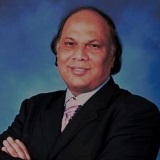
Rakesh Dixit is an accomplished executive, inventor, and scientist with over 35 years of success with top biotechnology and pharmaceutical companies, including Merck, Johnson & Johnson, and Medimmune - AstraZeneca. Currently, he is President and CSO of Regio Biosciences and Bionavigen, LLC. He is a Board Member of Regio Biosciences and a key member of multiple scientific advisory boards. Rakesh is also a chief adviser and consultant for more than 20 companies worldwide. His biopharmaceutical peers selected Rakesh as one of the 100 Most Inspiring People in the Pharmaceutical Industry by PharmaVOICE in 2015. Rakesh received the Most Prestigious Award of Long-Standing Contribution to ADCs by World ADC (Hanson-Wade), 2020. From 2006 to 2019, Rakesh was a Global Vice President of the Biologics R&D at Medimmune - AstraZeneca. Rakesh has unique expertise in developing biologics (e.g., monoclonal antibodies, bispecific biologics, antibody-drug conjugates, fusion proteins, peptides, gene and cell therapies, etc.) and small-molecule biopharmaceuticals. His areas of expertise include discovery, early and late preclinical development, safety assessment, DMPK, and translational sciences. Dr. Dixit conducted extensive graduate and post-graduate training in Pharmacology/Toxicology-Biochemistry with both Indian and USA Institutions (e.g., Case Western Reserve University, Medical College of Ohio, University of Nebraska) and is a Diplomate and Board Certified in Toxicology from the American Board of Toxicology, Inc. since 1992.
Feng Dong, PhD, Principal Research Scientist II, Foundational Immunology, AbbVie Cambridge Research Center
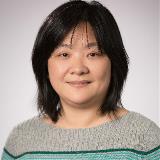
Feng Dong, PhD is a Principal Research Scientist II in the Foundational Immunology at AbbVie Cambridge Research Center. Dr. Dong received her PhD in Physics from Drexel University with an emphasis in computational biophysics. Following completion of her post-doctoral training in Washington University School of Medicine in St. Louis, Dr. Dong joined Merck Research Laboratory leading the therapeutic antibody design and engineering. In 2011, Dr. Dong moved to AbbVie to extend her research to Bi-/Multi-specific antibody discovery. Currently, Dr. Dong leads a group on design, engineering and generation of fit-for-purpose small molecules, peptides, antibodies, fusion proteins, novel biologics and cell lines to validate the novel therapeutic targets to treat autoimmune diseases, chronic infectious diseases and cancer. Dr. Dong has initiated and delivered several drug candidates into clinical trials. She is a co-author for peer reviewed articles and a co-inventor for several issued and filed US and international patents.
Jakob Dupont, MD, Executive Partner, R&D, Sofinnova Investments

Jakob Dupont brings more than two decades of experience in the field of oncology and other therapeutic areas, in developing therapies and programs dedicated to addressing high unmet medical needs. He is currently a member of the board of directors for Avenzo Therapeutics. Prior to joining Sofinnova, Jakob was previously Global Head of Research & Development (R&D) and Executive Vice President at Atara Biotherapeutics, where he helped lead efforts to secure regulatory approval of the first-in-kind product, Ebvallo® and advancing a multiple sclerosis candidate (ATA188) to a key Phase 2 read out. Prior to Atara, he served as the Chief Medical Officer at Gossamer Bio, overseeing global development, regulatory, and quality activities for the company, and advancing therapeutics in the disease areas of immunology, inflammation, and oncology. Before Gossamer Bio, Jakob served as Vice President and Global Head of Breast and Gynecologic Cancer Development for Genentech/Roche, where he was responsible for the global development of Herceptin®, Perjeta®, Kadcyla®, Tecentriq®, among others, and where he previously led the development of Avastin® for GYN and Breast Cancers when starting his industry career. Jakob was also Chief Medical Officer and Senior Vice President of OncoMed Pharmaceuticals, Inc., where he oversaw the successful submissions of eight investigational new drug applications (INDs) and 26 clinical trial initiations. Through his industry career he has received numerous grants and awards, contributed to 12 regulatory approvals, 13 successful IND filings, co-authored 47 peer-reviewed publications, and has 18 patents. Jakob received his M.D. from the Joan & Sanford I. Weill Medical College of Cornell University and his M.A. in philosophy from New York University. He also served as Assistant Chief Resident and completed his Medical Oncology Fellowship at Memorial Sloan Kettering Cancer Center (MSK), his Internal Medicine Residency at the New-York Presbyterian Hospital - Cornell Campus, and his Internal Medicine Internship at The University of Michigan Medical Center.
Mohamed Elmeliegy, PhD, Director Clinical Pharmacology, Clinical Pharmacology, Pfizer Inc.
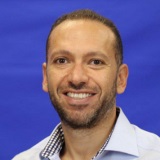
Dr. Mohamed Elmeliegy holds a position as a Director, Oncology Clinical Pharmacology department at Pfizer. Prior to joining Pfizer, he held several positions in Novartis. Dr. Elmeliegy leads a team that provides clinical pharmacology and pharmacometrics input for different phases of development for CD3 bispecifics, small molecules, monoclonal antibodies, biosimilars, and follow-on biologics. He's an Affiliate Faculty in the University at Buffalo SUNY, Buffalo, New York and the University of California San Diego. He received his PhD from St. Jude Children Research Hospital and the University of Tennessee (Memphis, TN) and completed a post-doctoral fellowship with Dr. Wojciech Krzyzanski and Dr. William J. Jusko at the Department of Pharmaceutical Sciences at SUNY Buffalo. He chaired the clinical pharmacology programming at AAPS Scientific Programming Committee for 2 years and is serving as the vice chair for the Life Cycle Management community and on the Steering Committee for the Biologics community in ASCPT. He’s member of several working streams of the IQ consortium.
Elizabeth Evans, PhD, COO & Senior Vice President, Discovery & Translational Medicine, Vaccinex
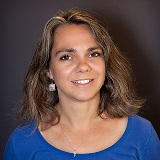
Elizabeth Evans is currently COO and Senior Vice President of Discovery and Translational Medicine at Vaccinex. She earned an MS in immunology and a PhD in pathology from the University of Rochester. Dr. Evans has over 25 years of industry experience in the discovery and development of therapeutic antibodies. The team is currently evaluating safety and efficacy of pepinemab for neurodegenerative diseases including Huntington’s Disease and an ongoing Phase 1/2 trial for Alzheimer’s Disease. Additionally, pepinemab is being evaluated in immunotherapy combinations for patients with head and neck cancer, melanoma, lung, breast, and pancreatic cancer. Dr. Evans leads research, clinical, and translational efforts to characterize immune responses and biomarkers of immunotherapy.
Chris Evans, PhD, Vice President, Translational Sciences, Adaptimmune
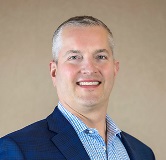
Chris currently leads the Pipeline Research and Translational Sciences groups within Research at Adaptimmune. The remit of the Translational Sciences team is to provide clinical trial support exploring the mechanism of action of Adaptimmune’s various cell therapy products, providing a better understanding of the drivers of safety, efficacy and durability, and guiding identification of biomarkers of response and indication selection. Chris has greater than 20 years of experience in all phases of drug development and cell therapy where he is recognized as a leading expert in the field of therapeutic and biomarker analysis as well as a leading expert driving translational research. He holds a B.S. in Chemistry awarded with honors from the University of Maryland at College Park and a Ph.D. in Analytical Chemistry from Purdue University.
Mark Exley, PhD, CSO, Imvax
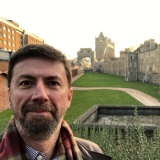
Mark Exley, Ph.D., is Imvax’s Chief Scientific Officer, directing the company’s research & development strategy and activities. Prior to joining Imvax, Dr. Exley was Vice President, Cellular Immunology for AgenTus (now Mink Therapeutics, NASDAQ:INKT). He also served on the faculty at Harvard Medical School and as a full Professor at the University of Manchester, UK and was a scientist at Immulogic Pharmaceutical. Mark trained in London, UK (BS, MS, PhD.). He currently retains an honorary appointment at Brigham & Women’s Hospital, Boston. Dr. Exley’s areas of research have included natural immunity, immunotherapy for cancers, acute and chronic infections and other inflammatory diseases. He has published over 130 articles in scientific journals and has received numerous research awards and grants.
Allen Qiang Feng, PhD, Founder and CSO, HebeCell Corp.
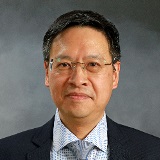
Allen is the Founder and Chief Scientific Officer of HebeCell Corp. Prior to HebeCell, Allen was the Director of Cell Biology of Semma Therapeutics (Acquired by Vertex), R&D Head of Stem Cell Bioprocessing Group at EMD Millipore (Merck, KGaA), Director and Senior Scientist at Advanced Cell Technology (Acquired by Astellas), and Senior Scientist at Stemgent, Inc (Now ReproCell). Allen is an inventor of several key patents of hematopoietic lineage-specific differentiation from human pluripotent stem cells (hPSCs), such as the generation of HLA-negative platelets, and a scalable 3D manufacture platform of NK from hPSCs.
Saba Ghassemi, PhD, Research Assistant Professor Pathology & Lab Medicine, Center for Cellular Immunotherapies, University of Pennsylvania
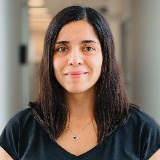
Dr. Saba Ghassemi is an Assistant Professor in the Department of Pathology and Laboratory Medicine and serves as a Principal Investigator at the Center for Cellular Immunotherapies at the University of Pennsylvania. Her research focuses on developing novel CAR T cells with enhanced potency through a multidisciplinary approach that integrates engineering with CAR T cell immunology. Dr. Ghassemi pioneered the development of an abbreviated culture paradigm, resulting in less differentiated progeny with improved potency. This breakthrough led to a successful clinical trial at UPenn utilizing a 3-day manufacturing process. Additionally, she has devised a novel method for delivering CAR transgenes into quiescent T cells, enabling the generation of highly potent CAR T cells within 24 hours. Dr. Ghassemi is currently spearheading efforts to transition this innovative platform into an upcoming clinical trial at Penn. Her groundbreaking work has garnered recognition through several research grants and patent applications aimed at enhancing CAR T cells' efficacy, expansion, and fitness for adoptive immunotherapy. Dr. Ghassemi's ongoing research endeavors focus on optimizing, streamlining, and automating the manufacturing process of CAR T cells, with the overarching goal of enhancing the translational applicability and accessibility of these novel therapies to a broader range of geographical locations and patient populations.
Alba Gonzalez, PhD, Associate Director, In Vivo Translational Pharmacology, Arsenal Bio

With a strong in cancer biology, tumor immunology and mouse models, Alba Gonzalez Junca leads the in vivo translational pharmacology team at Arsenal Bio, supporting the development of novel CAR-T cell therapies for solid tumors. She has experience in the discovery and preclinical development of cell therapies for the treatment of cancer. Alba holds a PhD in Biomedicine from the University of Barcelona and has been working in biotech and cell therapies for the last 7 years.
Thierry Guillaudeux, PhD, CSO, Kineta, Inc.
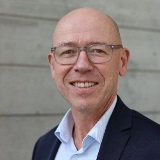
Dr. Thierry Guillaudeux has over thirty years of experience in Immuno-Oncology in France and in the USA. Dr. Guillaudeux has a strong executive background in academia, heading a research laboratory of the French National Institute of Health with more than sixty employees for ten years and serving as a Vice President in Technology Transfer at the University of Rennes where he negotiated and executed numerous contracts and licenses with industry. Dr. Guillaudeux has also served as a board member of two French companies for more than 5 years. He joined the industry 5 years ago where he has an executive role. Dr. Guillaudeux is leading the Kineta’s Immuno-Oncology programs from discovery and pre-clinical to IND filling. This includes all in vitro and in vivo immuno-oncological assay developments to evaluate the mechanisms of action of our drugs currently in our portfolio as well as toxicology studies for lead antibody selection. He leads the scientific strategy for the selection of new innovative Immuno-Oncology programs at Kineta. He is also in charge of our ongoing clinical trials. His fields of expertise in immuno-oncology are B cell lymphoma, lung cancer and the tumor microenvironment. He has published more than 50 peer-review publications and is a co-inventor of multiple patents in the field. He was also principal investigator or co-investigator on numerous French government and non-profit grants for his laboratory. Dr. Guillaudeux received his B.S. and M.S. degrees from the University of Rennes and his PhD in Immuno-Oncology from the University of Toulouse. He achieved his post-doctorate at the Fred Hutchinson Cancer Research Center and was responsible for the sequencing of the Human Major Histocompatibility Complex I.
Chao Han, PhD, Senior Vice President, Early Development, Tavotek Biotherapeutics
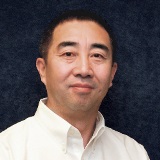
Chao Han, PhD, is the Senior Vice President of Early Development of Tavotek Biotherapeutics. He has more than 25 years of experience in drug discovery and development. Prior to joining TavoTek, he worked for Janssen R&D as a Scientific Director of Biologics Development Science and a Director of Biologics Clinical Pharmacology. He also worked for GSK as a DMPK Head and a Section Head of Pharmacokinetics and In Vivo Technology. He obtained his doctoral degree in Pharmacology and Therapeutics from the University of Manitoba, Faculty of Medicine, and master’s and bachelor’s degrees in chemistry from Nankai University. He received postgraduate training in the School of Pharmaceutical Sciences, University of California, San Francisco. He has published more than 40 research papers in peer-reviewed journals and six book chapters. He was the leading editor of a book titled Evaluation of Drug Candidates for Preclinical Development. Pharmacokinetics, Metabolism, Pharmaceutics, and Toxicology. He served as the Chair of the Early Development and Safety Steering Committee and Co-Vice Chair of the Cell, Gene, Regenerative, Nucleic Acid Medicines (CGRN) Committee under ASCPT. He was a key member of the MABEL Working Group under the IQ. He has been an active member of AAPS for over twenty years.
Takamitsu Hattori, PhD, Research Assistant Professor, Biochemistry and Molecular Pharmacology, NYU Grossman School of Medicine
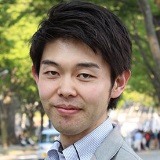
Takamitsu Hattori, PhD, is a Research Assistant Professor in the Department of Biochemistry and Molecular Pharmacology at the NYU Grossman School of Medicine and is a member of the Laura and Isaac Perlmutter Cancer Center at NYU Langone Health. He received a PhD in Biomolecular Engineering from Tohoku University (Sendai, Japan) and completed postdoctoral training in protein engineering at The University of Chicago. He was a Research Assistant Professor at Tohoku University before joining the current institute. His research focuses on designing and engineering proteins with novel functions and applying such synthetic proteins to the development of biologics, affinity reagents, and research tools.
Amanda Huff, PhD, Postdoctoral Research Fellow, Johns Hopkins University School of Medicine
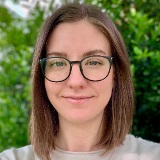
Dr. Huff received her PhD in Virology and Gene Therapy from the Mayo Clinical Graduate School of Biomedical Sciences. There, Dr. Huff studied oncolytic viral therapy and defined mechanisms of promoting antigen degradation to enhance processing and presentation of immunogenic antigens delivered by viral vectors. Dr. Huff then joined Dr. Elizabeth Jaffee’s laboratory at Johns Hopkins University for her postdoctoral fellowship in 2021, where she now studies and develops novel neoantigen-targeted cancer vaccines for the treatment of pancreatic cancer.
Madan H. Jagasia, MS, Chief Executive Officer, R&D, Obsidian Therapeutics
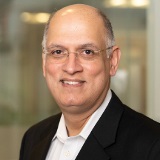
Dr. Madan Jagasia, MD, MS, MMHC is the Chief Executive Office at Obsidian Therapeutics. He brings his cell therapy expertise to further contribute to the field of tumor-infiltrating lymphocyte (TIL) cell therapy in solid tumors. He completed his medical school training at Seth G. S. Medical College and the King Edward Memorial Hospital, Mumbai, India, and completed his Internal Medicine training from Methodist Hospital, University of Tennessee, Memphis. After graduating from his hematology-oncology fellowship at Vanderbilt University Medical Center, Nashville, TN he spent 20 years in academia at Vanderbilt and was the Section Chief of Hematology-Stem Cell program and Medical Director of the stem cell transplant program from 2008-2018. He was the Chief Medical Officer of the Vanderbilt-Ingram Cancer Center from 2018-2020. He led a vibrant clinical research portfolio with a focus on GVHD, an immune complication of allogeneic stem cell transplant and has published >200 papers in peer reviewed journals. Madan was also the Executive Vice President, Medical Affairs at Iovance Biotherapeutics prior to joining Obsidian.
Allen Jiang, PhD, Postdoctoral Associate, Laboratory of Professor David Liu, Broad Institute of Harvard and MIT
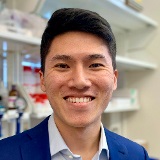
Dr. Allen Jiang is currently a postdoctoral associate in the lab of Professor David Liu at the Broad Institute of Harvard and MIT. He completed his PhD in Chemical Engineering at MIT with Professors Robert Langer and Daniel Anderson. His PhD focused on the development of localized mRNA-LNP delivery systems for vaccines and inhaled therapies.
Philip R. Johnson, MD, CEO, Interius Biotherapeutics
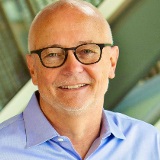
Prior to assuming his current role at Interius, Phil was the founding CSO, President, and Interim CEO of Limelight Bio from 2016 - 2020. For the three preceding decades, he led large research enterprises at two of the world’s premier academic pediatric hospitals while receiving multiple national honors including election to the American Pediatric Society and being named a Fellow of the American Association for the Advancement of Science and a Fellow of the American Academy of Microbiology.
Saad Kenderian, PhD, Assistant Professor, Medicine and Oncology, Mayo Clinic College of Medicine
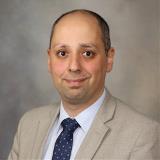
Dr. Kenderian is a consultant in hematology at the Mayo Clinic Rochester, with joint appointments in the Department of Immunology and Department of Molecular Medicine. He holds the academic rank of Assistant Professor of Medicine, Oncology, and Immunology in Mayo Clinic College of Medicine. As a physician-scientist, he directs a federally funded translational laboratory program focused on T cell biology, cellular engineering, and chimeric antigen receptor T (CART) cell therapy. In this context, he collaborates with multiple pharmaceutical and biotech companies. Since 2019, three clinical trials have been translated from his laboratory, two of them are multi-center trials. He has authored more than 90 manuscripts and book chapters. He is an inventor on multiple patent applications and is the Principal Investigator on 5 active clinical trials.
Albert Kim, Assistant Professor, Harvard Medical School; Assistant Physician, Massachusetts General Hospital Cancer Center
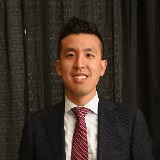
Dr. Kim is an oncologist with interests in using machine learning and Omics to develop precision-based treatment paradigms and study therapeutic resistance. His laboratory efforts employ machine learning as a tool to analyze and integrate complementary high-dimensional data (e.g. radiology; pathology) to develop multi-modal biomarkers for solid tumors and precision-based paradigms for cancer patients. His work has received funding from the Damon Runyon Cancer Research Foundation, American Association of Cancer Research, Conquer Cancer/American Society of Clinical Oncology, National Cancer Institute, and American Brain Tumor Association.
Naoki Kimura, PhD, Scientist, Discovery Pharmacology, Chugai Pharmaceutical Co. Ltd.
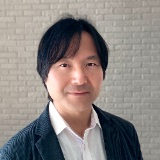
Naoki Kimura, Ph.D. is a researcher at Chugai Pharmaceutical Co., Ltd., located in Yokohama, Japan. Since 2005, he has been involved in the search for therapeutic antibody targets in the field of oncology. From 2013, he has been responsible for preclinical pharmacology in Chugai's Discovery Pharmacology Department. In his drug discovery research, he focuses on the promise of T cell engagers (TCEs) in cancer treatment. He is working on the development of next-generation TCEs, striving to further improve their efficacy. As the non-clinical functional leader of the next-generation TCE program, he is aiming for their clinical applications.
Michael Klichinsky, PharmD, PhD, Co-Founder & Chief Scientific Officer, Carisma Therapeutics
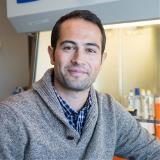
Michael Klichinsky obtained his Ph.D. while training with Carl June and Saar Gill at the Center for Cellular Immunotherapies at the University of Pennsylvania. While at Penn, Michael invented CAR macrophages and co-founded Carisma Therapeutics with Saar Gill. Currently, Michael is the CSO at Carisma Therapeutics, a biotech company developing engineered macrophage immunotherapies.
Keith Knutson, PhD, Professor, Immunology, Mayo Clinic
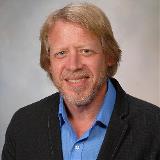
Dr. Keith L. Knutson is currently Professor in the Department of Immunology at Mayo Clinic in Jacksonville and Director, Mayo Clinic Florida Cancer Research Program. He received his Ph.D. from the University of Georgia in Physiology and Pharmacology in 1995 and completed two post-doctoral fellowships in immunology, one at the University of British Columbia and the other at the University of Washington. He was a 2004 recipient of a Howard Temin Award from the National Cancer Institute. Dr. Knutson’s current interests and research focuses on the immunology and immunotherapy of breast and ovarian cancers. Interests are in both the basic immunobiology and clinical translation, including clinical trials. The laboratory conducts research on cancer vaccines focuses on augmenting T cell immunity using peptide and virus-based vaccines. These vaccine strategies are primarily aimed at preventing the patients from relapsing after optimal conventional therapies. Dr. Knutson is currently (1) a member of the Integration Panel of Department of Defense’s Ovarian Cancer Research Program, and (2) a Susan G. Komen Scholar.
Giedre Krenciute, PhD, Associate Professor, Bone Marrow Transplantation & Cellular Therapy, St. Jude Children's Research Hospital
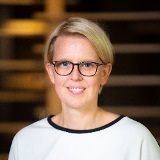
Giedre Krenciute is an Assistant Member in the Department of Bone Marrow Transplantation and Cellular Therapy at St. Jude Children’s Research Hospital. She received her PhD in Biochemistry and Molecular Biology at Baylor College of Medicine (BCM), followed by post-doctoral training in the Center for Cell and Gene Therapy at BCM. The major focus of her laboratory is to develop an effective immunotherapy for pediatric brain tumors using genetically modified T cells. Research areas include generating and optimizing CAR T cells to target brain tumor associated antigens, enhancing CAR T cell effector functions by using different next -generation genetic manipulations, and understanding tumor escape mechanisms in order to design superior immunotherapy-based treatments.
Theresa M. LaVallee, PhD, Chief Development Officer, Coherus Biosciences
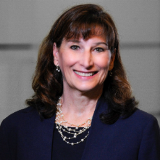
Dr. LaVallee has more than 25 years of biopharmaceutical and research experience with a broad knowledge in the discovery and development of drugs. She has advanced diagnostics and drugs in oncology, immunology and inflammatory diseases from discovery through late state development. Prior to joining Coherus Biosciences as Chief Development Officer, she was Vice President, Translational Medicine and Regulatory Affairs at the Parker Institute for Cancer Immunotherapy (PICI). Before PICI, Dr. LaVallee held executive roles in drug development with Celldex Therapeutics and Kolltan Pharmaceuticals and was part of the team that built the immune-oncology (IO) portfolio at Medimmune/AstraZeneca working on the clinical development and regulatory packages for multiple checkpoint inhibitors and PD-L1 diagnostic. Dr. LaVallee started her career at EntreMed and worked on the initial clinical development of thalidomide and thalidomide analogs. She has a depth of expertise in regulatory strategy to enable science driven development decisions and quality regulatory packages. Dr. LaVallee has spent most of her career working on advancing oncology drugs that can improve the survival and quality of life for cancer patients. She has been key in building successful teams, organizations and collaborations. She is author or co-author of more than 50 publications and abstracts and named in the Top 25 Woman in Biotech in 2023. She received her Ph.D. degree from University of California, Los Angeles and her B.A. degree from the University of California, Santa Barbara.
Lawrence Lamb, Jr., PhD, Executive Vice President & CSO, IN8Bio
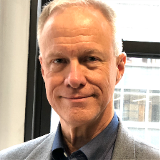
Dr. Lamb leads scientific, translational, and manufacturing strategy as scientific co-founder, Executive Vice President, and Chief Scientific Officer of IN8Bio. He was first to describe the association between relapse-free survival and homeostatic gdT cell recovery in high-risk leukemia patients. His work has been funded by the NIH, the Elsa Pardee Foundation, the Leukemia and Lymphoma Society. He held the National Brain Tumor Foundation’s Samuel Gerson Leadership Chair for Glioblastoma Research from 2008 to 2010. While at the University of Alabama at Birmingham, Dr. Lamb developed the scientific support for chemotherapy resistant gdT cell-based immunotherapy for high-grade brain tumors.
Joseph M. Lee, PhD, Senior Director, Product Sciences, Affini-T Therapeutics
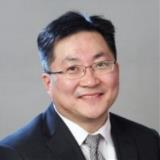
Joseph Lee received his Doctorate in Biochemistry from McGill University (Montreal, QC, Canada). He further trained at the NIH (NCI and NIDDK). Collectively, Joe’s research background focused on signaling pathways leading to the dysregulation of cell growth - much of it centered on viral and cellular oncogenes. Following his post-doctoral fellowship, he led the Development Services/Molecular Biology group at BioReliance where he helped set up the Gene and Cell Therapy testing programs. Joe has held additional posts at Shire and Takeda supporting gene therapy and vaccine programs from both the CMC and Clinical perspectives. He was later recruited to build the Analytical Development (gene therapy) at group at PTC Therapeutics in New Jersey. Currently Joseph is leading the CMC Early Development Analytics group where his team is responsible for vectorology and assay development support for all of the cell therapy programs.
Joanna Y. Lee, PhD, Principal Scientist, Biochemical & Cellular Pharmacology, Genentech
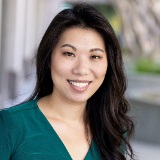
Joanna Lee completed her Ph.D. in Biology at Stanford University, where she researched centrosome protein fusions in leukemia. She went on to a postdoc in the Department of Mechanical Engineering at Stanford, and generated biomaterials to study how the mechanical properties of the tumor microenvironment drive cancer invasion. In 2019, Dr. Lee joined the Department of Biochemical & Cellular Pharmacology at Genentech as a Principal Scientist and Group Leader. In addition to her work on 3D culture tumor models, she has served as the lead pharmacologist on 3 cancer immunology drug discovery project teams and is currently helping to build the new Phenotypic Screening group at Genentech.
Yuguo Leo Lei, PhD, Associate Professor, Biomedical Engineering, Pennsylvania State University
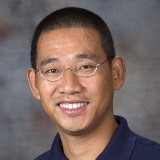
Yuguo Leo Lei is faculty in Biomedical Engineering at Penn State University. His research focuses on developing novel technologies and bioprocesses for large-scale production of therapeutic cells and virus. He is the faculty director of the Penn State Cell culture Facility, which provides scale-up service, workshops for professionals, and education for on-campus students, on industrial biomanufacturing.
Bruce L. Levine, PhD, Barbara & Edward Netter Professor, Cancer Gene Therapy, Center for Cellular Immunotherapies, University of Pennsylvania
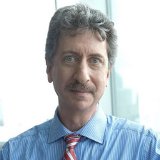
Dr. Bruce Levine, Barbara and Edward Netter Professor in Cancer Gene Therapy, is the Founding Director of the Clinical Cell and Vaccine Production Facility (CVPF) in the Department of Pathology and Laboratory Medicine and the Abramson Cancer Center, Perelman School of Medicine, University of Pennsylvania. He received a B.A. (Biology) from Penn and a Ph.D. in Immunology and Infectious Diseases from Johns Hopkins. First-in-human adoptive immunotherapy trials include the first use of a lentiviral vector, the first infusions of gene edited cells, and the first use of lentivirally-modified cells to treat cancer. Dr. Levine is co-inventor of the first FDA approved gene therapy (Kymriah), chimeric antigen receptor T cells for leukemia and lymphoma, licensed to Novartis. Dr. Levine is co-inventor on 31 issued US patents and co-author of >200 manuscripts and book chapters with a Google Scholar citation h-index of 109. He is a Co-Founder of Tmunity Therapeutics, and of Capstan Therapeutics both spinouts of the University of Pennsylvania. Dr. Levine is a recipient of the William Osler Patient Oriented Research Award, the Wallace H. Coulter Award for Healthcare Innovation, the National Marrow Donor Program/Be The Match ONE Forum 2020 Dennis Confer Innovate Award, the American Society for Gene and Cell Therapy Jerry Mendell Award for Translational Science, and serves as Immediate Past-President of the International Society for Cell and Gene Therapy. He has written for Scientific American and Wired and has been interviewed by the NY Times, Wall Street Journal, Washington Post, NPR, Time Magazine, National Geographic, Bloomberg, Forbes, BBC, and other international media outlets.
Sam Shu-Min Liu, PhD, CEO & President, Princeton Enduring Biotech, Inc.
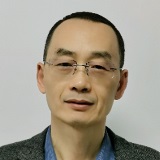
Shumin (Sam) Liu, PhD, founder and CEO of Princeton Enduring Biotech, Inc. Dr. Liu has over 20 years’ experience in drug development of antibodies, and PEG conjugated recombinant proteins. Before starting at Enduring Biotech, Dr. Liu played a leading role in clinical manufacturing of monoclonal antibody drugs at BMS. Prior to BMS, Dr. Liu had over 13 years' research and development experience at Enzon Pharmaceuticals, Inc., where he led development of two commercial PEGylated protein drugs, Adagen and Oncaspar. Dr. Liu received his PhD from Penn State University.
Yijun Liu, PhD, Associate Director, Cell Biology, Kite Pharma
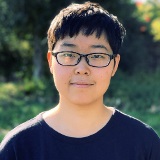
Yijun Liu, Ph.D., is a researcher specializing in cell therapy bioprocess development and process innovation. She received her Ph.D. in Chemical Engineering from Florida State University with an emphasis on developing mesenchymal stem cell therapy for autoimmune diseases. Following post-doctoral training in City of Hope Beckman Research Institute focusing on allogeneic CAR T cell therapy development, she joined Amgen drug substance technology team leading the development of clinical bioprocess for autologous TCR-T cell therapy. She joined Kite Pharma in 2022 and currently holds the position of Associate Director in R&D department. Her current research primarily revolves CAR T cell manufacturing process innovations focusing on rapid manufacturing of CAR T cells and in-process control of T cell metabolism to promote stemness features and efficacy of CAR T cell for early development stage programs.
Michael T. Lotze, Vice Chair Research & Professor, Surgery, University of Pittsburgh
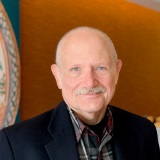
Michael T. Lotze, MD, FACS is Professor of Surgery, Immunology, and Bioengineering; Director of the DAMP Laboratories at the UPMC Hillman Cancer Center; and Sr. Advisor for the Immune Transplant and Therapy Center within the University of Pittsburgh Medical Center Enterprises. His research work includes modern immunotherapy and gene therapy, dendritic cell, T cell, and cytokine therapies, and investigation of the role of mitochondria, metabolism, and unscheduled cell death in cancer. Dr. Lotze has worked in the field of immunology and clinical medicine for over 30 years and has had the opportunity to personally review and advance the work of individuals developing translational research, particularly within cancer. Dr. Lotze is a clinician scientist who has spent the last decade assembling teams to work on the extraordinary problem of pancreatic cancer, renal cancer, and lung cancer. He is a long-time SITC enthusiast, attending his first meeting in Williamsburg in 1989, presiding over the Society in 1998, and launching both the Primer on Tumor Immunology as well as the SITC Clinical Immuno-Oncology Network to advance the most rigorous and robust clinical protocols in immunotherapy of cancer. Dr. Lotze is the co-inventor of 10 patents in dendritic cell vaccines and antigen discovery, 13 patents in tumor infiltrating lymphocyte therapy (while at Iovance), additional patents at Nurix Therapeutics where he served as Chief Cell Therapy Officer 2020-2023. He is an award-winning NCI-trained scientist (1978-1990), the inaugural Director of Surgical Oncology at Pitt (1990-2000), former Vice President of Research at GlaxoSmithKline (2001), founding director of the UPCI Academy, former Chief Scientific Officer at Lion/Iovance Biotherapeutics, former CCO at Nurix Therapeutics, and innovative educator as a prolific clinician-scientist/tumor immunologist with over 500 publications and several books.
Thomas Marron, MD, PhD, Director, Early Phase Trials Unit, Tisch Cancer Center; Professor, Medicine, Hematology and Oncology; Professor, Immunology and Immunotherapy, Icahn School of Medicine at Mount Sinai
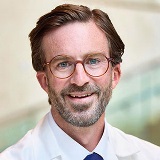
Thomas Marron, MD, PhD, is the Director of the Early Phase Trials Unit (EPTU) at the Tisch Cancer Institute, and Professor of Medicine and Professor of Immunology and Immunotherapy at Icahn School of Medicine at Mount Sinai. He holds a PhD in immunology, and his research program focuses on development of novel immunotherapies and combinatorial therapeutic approaches. He has a keen interest in myeloid biology, and the use of myeloid modifying and mobilizing agents in personalized and off-the-shelf cancer vaccine approaches. Additionally, in the EPTU, alongside dozens of clinical trials focused on novel immunotherapies and targeted therapies, he established The Neoadjuvant Research Group to Evaluate Therapeutics (TARGET), which is a large multidisciplinary team of clinicians and scientists tasked with defining how novel therapies work through biospecimen-rich “window-of-opportunity” pre-operative trials. Along this line, during the COVID pandemic, he established the Immunotherapy and Novel TargEt Research Across Clinical Teams (INTERACT) which aimed to foster collaborations across medical specialties to repurpose novel and established biologic immunomodulatory therapies and disrupt the siloed culture of medical research; recent successful examples including the use of the eczema medication dupilumab for other inflammation-related diseases including lung cancer. TARGET and INTERACT exploit novel immune monitoring platforms to characterize tissue, blood and stool from patients, enabling us to resolve the immunodynamic changes induced by standard therapies and by novel immunotherapies. These clinical trials will aid us to define the spatial makeup of the tumor immune microenvironment, and resolving the complexity within the lymphoid and myeloid lineages using a variety of single-cell transcriptomic and proteomic platforms. With a better understanding how therapies work we can more rationally design cancer immunotherapy trials and develop novel therapies and/or repurpose old therapeutics, with the ultimate goal of improving patient outcomes, while minimizing toxicities.
Virginia Maxwell, Senior Associate Producer, Cambridge Healthtech Institute
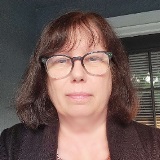
In addition to the Preclinical & Translational Immuno-Oncology meeting, Virginia produces the Bispecific and Multi-Specific Antibody Therapeutics track at the Immuno-Oncology Summit Europe. She is an associate producer for the Molecular & Precision Med Tri-Con, which takes place in March in San Diego. Prior to CHI, she worked as a policy change analyst for New England Life Insurance Co., information processing specialist and programmer (SAS and Unix shell) for Harvard T.H. Chan School of Public Health, and publishing production manager for Strang Communications. She has a BA degree in Environmental & Growth Management Studies from Rollins College, Winter Park, Florida.
Robert S. Meehan, MD, Senior Director, Clinical Development, Moderna
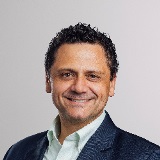
Dr. Robert Meehan is a board-certified physician in oncology and an experienced pharmaceutical executive with over 10 years of leadership experience in biotechnology and pharmaceutical development. He joined Moderna in 2017 to lead the company's efforts to develop mRNA-based medicines including individualized therapies for cancer patients. He was the clinical lead for the oncology portfolio as it entered into clinic and mRNA-4157 INT through the current developments including the breakthrough, PRIME, and ILAP designations. Well experienced in basic, translational, and clinical tumor immunology. Prior to joining Moderna, Dr. Meehan was a staff clinician at the National Cancer Institute in the DTC. He has authored many publications and is an inventor on multiple patents.
John B. Mumm, PhD, Founder & CEO, Deka Biosciences
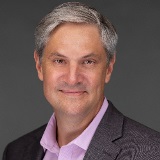
After earning his Bachelor’s Degree from Menlo College, John received an MS from Stanford University and a PhD from MD Anderson Cancer Center where he discovered that IL-10 directly activates anti-tumor CD8+ T cells. John conducted post-doctoral work for a year at DNAX Research Institute and became a Scientist at Schering Plough where he developed PEGylated IL-10 (AM0010) as an immunoncology asset. He then founded Targenics, later merged with ARMO Biosciences (briefly a publicly traded company), to clinically develop AM0010 and other immune oncology assets. ARMO Biosciences was acquired by Eli Lilly in 2018 for a $1.6B up-front deal. As a founder and Senior Director of Technical Operations at ARMO, John led the manufacturing and pre-clinical research teams. John served as the Director of Immunoncology R&D at Medimmune LLC and is the author of 28 manuscripts and 52 granted or pending patents. After reviewing the immuno-oncology space for two years at MedImmune and developing such diverse projects as innate and T cell agonists, CAR T and other cell therapy projects as well as novel immunostimulatory antibody drug conjugates, John has most recently founded Deka Biosciences. Deka is the next generation cytokine development company created to solve the challenges associated with harnessing the massive potential of cytokine therapy. With the challenges in developing T cell agonists and cell therapy programs, it is likely that cytokine combinations coupled with targeting modalities administered in conjunction with precision patient selection will be clear value drivers for the pharmaceutical industry for years to come.
Roderick O'Connor, PhD, Research Assistant Professor, Pathology & Lab Medicine, University of Pennsylvania
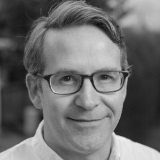
Dr. O'Connor's research emphasizes novel conditioning strategies and genetic approaches to confer unique metabolic attributes to CAR T cells. In collaborative research with Nucleus Biologics, Dr. O'Connor developed a customized, cGMP grade, CAR T cell culture medium for the University of Pennsylvania (UPenn) clinical sector. In a recent paper, he shared how this state-of-the-art medium formulation enhances CAR T cell potency and anti-tumor function. As medium composition can obscure metabolic responses induced by CAR co-stimulation, he recently designed a physiologic medium specifically for the Seahorse assay (Agilent Thought Leader Award). His team were also the first to show how nonnative enzymes increase the resilience of CAR T cells against metabolic (lactate, hypoxia) and immune (Siglec) checkpoints in solid tumor environments. His expertise in T-cell metabolism has been recognized through an Award for Excellence in Immunology (AAI) and exemplified by several industry sponsored research alliances with Seahorse Bioscience, Nucleus Biologics, and Agilent. At UPenn, his team is now poised to translate our advances in CAR T cell metabolic fitness to target various malignancies and auto-immune diseases. Dr. O’Connor is a highly regarded expert in CAR-T cell metabolism and has presented his findings at AAI, ASGCT, and the CAR-TCR Summit. Dr. O’Connor co-organizes the annual metabolomics symposium at UPenn and has presented several workshops as well as a webinar series with Nucleus Biologics on CAR-T cell metabolism.
Iman Osman, MD, Assoc Dean & Professor; Dir NYU Melanoma SPORE, Medicine (Oncology) and Urology, NYU Grossman School of Medicine
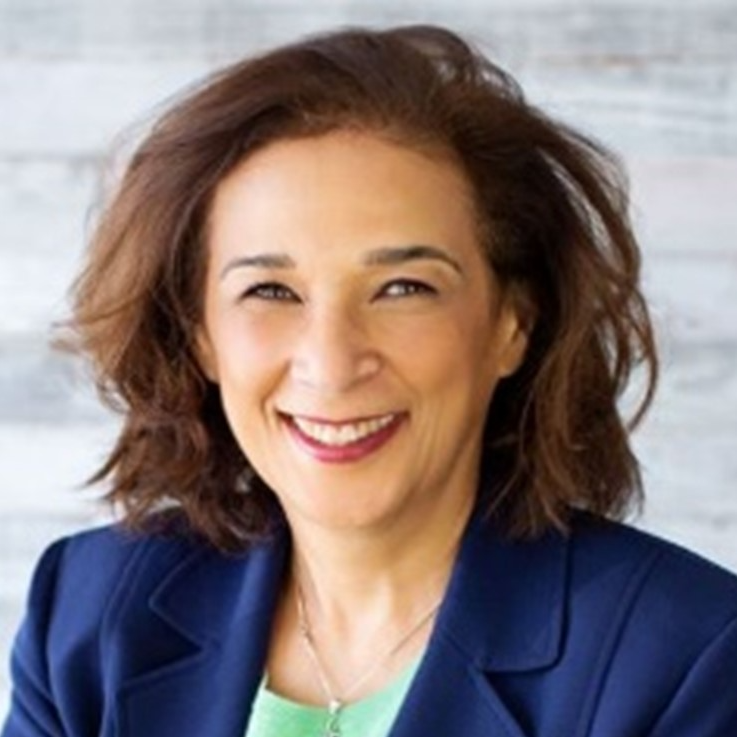
Dr. Iman Osman is a physician-scientist whose primary research interest is in Melanoma, focusing on biomarker development and the identification of potential new molecular targets for melanoma treatment. Her research efforts have led to ~200 peer-reviewed publications, most in high impact journals such as Cancer, Cancer Cell, Cancer Discovery, Nature Communications. Pioneering the establishment of the NYU Interdisciplinary Melanoma Cooperative Group (IMCG) in 2002, Dr. Osman has spearheaded efforts to amass clinical data from around 6,000 patient subjects and in excess of 110,000 biospecimen samples. Notably, her leadership secured a significant NIH/NCI Skin SPORE grant exceeding 11 million dollars over the past 5 years, facilitating over 150 publications. Her research programs are funded by both US federal and non-federal organizations.
Ira H. Pastan, PhD, Co-Chief, Head & Distinguished Investigator, Molecular Biology, National Cancer Institute (NCI), National Institutes of Health
.tmb-0.jpg)
Ira Pastan is a graduate of Tufts College and Medical School. He did his medical training at Yale and went to NIH in 1959 where he has spent his entire career. In 1972 he founded the Lab of Molecular Biology at NCI. He is interested in antibody-based therapies of cancer. In 1992, Pastan and colleagues discovered the mesothelin protein followed by cloning of the mesothelin cDNA. He has developed CAR T cells, CAR M cells and bispecific T cell engagers targeting mesothelin.
Sruthi Ravindranathan, PhD, Senior Scientist, Cellular Immunology, Coherus Biosciences
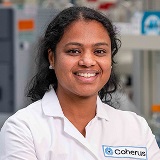
Sruthi Ravindranathan, Ph.D., is a Senior Translational Medicine Scientist at Coherus Biosciences focused on developing novel immunotherapies to overcome tumor associated immunosuppression. Dr. Ravindranathan has over 10 years of industry and academic experience in drug development and studying the immune system. She earned her Ph.D. in Biomedical Engineering from the University of Arkansas and completed her post-doctoral training at Emory University, School of Medicine. Dr. Ravindranathan has been recognized by Society for Immunotherapy of Cancer (SITC) and American Association of Immunologists (AAI) with research awards. She is an inventor on three patents and has more than 15 scientific publications in well reputed scientific journals.
Alexander Rubinsteyn, PhD, Assistant Professor, Computational Medicine and Genetics, University of North Carolina at Chapel Hill
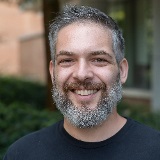
Alex Rubinsteyn is an Assistant Professor of Genetics and Computational Medicine at the University of North Carolina at Chapel Hill, where he helps run the Personalized Immunotherapy Research Lab. His research weaves together genomics, immunology, bioinformatics, and machine learning with the aim of developing fully personalized antigen-directed cancer immunotherapies that actually work.
Mike Schmidt, Chief Scientific Officer, Alloy Therapeutics

Mike Schmidt, PhD is an experienced biotherapeutic discovery and development expert managing technical innovation across Alloy’s platforms, services, and company formation. Previously, Mike was CSO at Ankyra Therapeutics and led discovery efforts at Eleven Biotherapeutics and Compass Therapeutics. Mike received his PhD from MIT, where focused on engineering of antibodies for improved targeting of solid tumors.
Ethan Shevach, MD, Senior Investigator, Cellular Immunology, Laboratory of Immune System Biology, NIAID, NIH
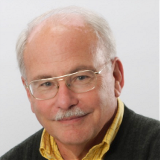
Dr. Shevach received his A.B. and M.D. degrees from Boston University. He is presently Chief, Cellular Immunology Section, Laboratory of Immunology. Dr. Shevach is the author of over 450 papers in the field of Immunology and his research interests over the years have included antigen presentation and processing, T lymphocyte activation, pathogenesis of autoimmunity, and most recently the role of regulatory T cells in immune responses. He served as Editor-in-Chief of the Journal of Immunology from 1987 to 1992 and as Editor-in-Chief of Cellular Immunology from 1996 to 2007. He is a member of the editorial boards of several journals including Immunity, Journal of Experimental Medicine, and Human Immunology.
Nick A. Siciliano, PhD, CEO, ViTToria Biotherapeutics
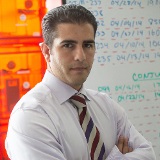
Dr. Siciliano is the CEO and Co-Founder of Vittoria Biotherapeutics, Inc., a clinical stage, gene-edited cell therapy Company with technology developed at the University of Pennsylvania Medical School. Previously, Dr. Siciliano was the CEO and Co-Founder of Invisible Sentinel, Inc. a molecular diagnostic company that was acquired in 2019 by bioMerieux, a global market leader for diagnostic testing. Dr. Siciliano was the inventor of Invisible Sentinel's proprietary platform technologies, veriFLOW and veriPRO, and led the company's business and R&D initiatives from the concept through acquisition. Dr. Siciliano received a BS degree in Chemistry from Villanova University. He earned a PhD in Immunology and Microbial Pathogenesis from Thomas Jefferson University where he studied antigen presentation. Dr. Siciliano is an Entrepreneur in Residence at Agent Capital, and an advisor for Tellus bioVentures and Valley Forge Investment Group. He also serves on several biotech start-up Advisory Boards and is a lecturer in entrepreneurship at local Universities. He holds multiple utility and design patents for diagnostic technologies and has published scientific manuscripts in the fields of bacteriology, virology, immunology, molecular biology, and cancer immunotherapy.
Natalie Silver, MD, Director, Head and Neck Cancer Research, Center for Immunotherapy & Precision Immuno-Oncology, Cleveland Clinic
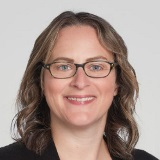
Natalie Silver MD, MS, FACS, is Staff at the Cleveland Clinic Head & Neck Institute and Director of Head and Neck Cancer Research. She is an Assistant Professor at Case Western Reserve University. Dr. Silver is a practicing head and neck surgical oncologist and Principal Investigator in the Center for Immunotherapy and Precision Immuno-Oncology at the Cleveland Clinic Lerner Research Institute. Dr. Silver received her medical and graduate degrees from Georgetown University and completed a surgical and research head and neck cancer fellowship at MD Anderson Cancer Center. Dr. Silver’s research is focused on developing therapeutic mRNA nano-vaccines for head and neck cancer and translating these discoveries into clinical trials.
M. Celeste Simon, PhD, Scientific Director, The Abramson Family Cancer Research Institute; Arthur H. Rubenstein, MBBCh Professor, Cell and Developmental Biology, University of Pennsylvania Perelman School of Medicine
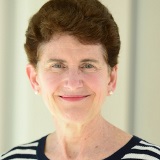
M. Celeste Simon, Ph.D. is the Scientific Director of the Abramson Family Cancer Research Institute and an Associate Director of the Cancer Center at the Perelman School of Medicine at the University of Pennsylvania. Dr. Simon's research is focused on how cells sense and respond to changes in the availability of molecular oxygen and nutrients. She was an HHMI Investigator for twenty years and has been elected to the American Academy of Arts and Sciences, the National Academy of Medicine, and National Academy of Sciences. She was named a Fellow of the AACR Academy and a FASEB Lifetime Achievement Awardee.
Colin Thalhofer, PhD, Director of Research and Development, AgonOx, Inc.
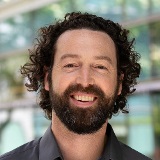
Colin Thalhofer, PhD, began his immunology training at the Earle A. Chiles Research Institute from 2000-2003. He went on to the immunology graduate program at the University of Iowa and received his doctorate in 2011, where his research focused on the molecular and cellular interactions between the protozoan parasite Leishmania and mammalian immune system. Colin returned to Portland Oregon and joined AgonOx Inc. in 2013, his research has been directed at cancer immunotherapy drug target discovery and development by profiling the cellular and molecular components of the tumor microenvironment and testing therapeutic strategies in vitro and in vivo. Colin is currently leading AgonOx's tumor-reactive TIL enriched adoptive cell therapy program as it transitions from preclinical development to clinical use and is developing patient-derived xenograft adoptive cell therapy models.
Robert Tighe, CSO, Ankyra Therapeutics
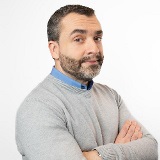
Rob joined TCR2 in 2019 and is currently Vice President of Research with oversight for all preclinical research activities and translational medicine. He brings over 25 years of experience in early clinical development and IND preparation while at large pharmaceuticals and biotechnology companies. Previously, he served as Vice President of Translational Immunology and Immunopharmacology at Compass Therapeutics, where he led the discovery and IND approval of CTX-471, a CD137 agonist antibody, and built the cellular immunology and autoimmunity research teams. Prior to Compass, he held several positions of increasing responsibility at EMD Serono, where he was a major contributor to the success of three INDs including the NHS-IL12 immunocytokine, the now-approved anti-PD-L1 antibody avelumab (Bavencio) and M7824, an anti-PD-L1/TGFß-trap molecule. Earlier in his career, Rob served in various research roles at EMD Lexigen Research Center, ArQule, The Jackson Laboratory, Massachusetts Institute of Technology, Genetix Pharmaceuticals (now bluebird bio), and the Whitehead Institute for Biomedical Research.
Anna Tocheva, PhD, Assistant Professor, Genetics & Genomic Sciences, Icahn School of Medicine at Mount Sinai
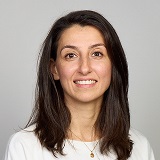
I am an Assistant Professor at the Department of Genetics and Genomic Sciences and a member of the Tisch Cancer Institute and the Precision Immunology Institute at the Icahn School of Medicine at Mount Sinai. My laboratory integrates cellular and molecular immunological assays with high throughput proteomic and genomic approaches to study the signaling pathways triggered by inhibitory receptors in human T cells. To achieve a personalized view of each patient’s anti-tumor immunity and responses to immunotherapy, my lab develops patient-derived co-culture models incorporating 3D organoids, which reproduce the malignant cell composition of each patient’s tumor, and autologous tumor and blood-derived T cells. This novel platform allows us to translate the findings from our fundamental immunobiology studies of immune checkpoint signaling into functional immunoassays and pre-clinical strategies to augment anti-tumor T cell responses.
Mark A Tornetta, Vice President, Biologics Discovery, Tavotek Biotherapeutics
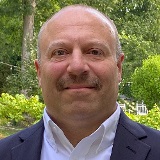
Mark’s antibody engineering career started at SmithKline Beecham/GSK. The implementation of the pCombIII system from Scripps Research Institute enabled him to develop a new technique called “epitope blocked panning” which contributed to the discovery of a neutralizing anti-RSV antibody. At Centocor/Janssen Pharmaceuticals, he was a key contributor in implementing two phage display platforms, Morphosys HuCAL system and the Fab-pIX display system. His continued creativity in panning techniques led to the discovery of Astegolimab and many back up candidates to that of Talquetamab (Talvey). Mark's 33-year dedication to biologics discovery continues at Tavotek Biotherapeutics, where he and his team developed TavoSelect, generating diverse sets of fully synthetic human variable heavy-only antibodies (VHO). His team’s current goal is to evaluate therapeutic index early in the discovery process to ultimately reduce clinical attrition of biologics in the clinic. He holds a Master of Science from Drexel University, an inventor and author on 24+ patents and 26+ publications, chaired/presented at scientific conferences and received 5 Leadership Innovation awards while at Johnson & Johnson.
Thomas Trolle, PhD, Director, Bioinformatics & AI/ML, Evaxion Biotech A/S
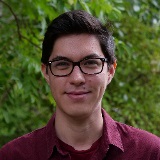
Thomas joined Evaxion in 2016, and is currently leading the development of Evaxion’s AI-Immunology platform for designing vaccines against cancer and infectious diseases. He holds a PhD in Immunological Bioinformatics from the Technical University of Denmark, where he worked on developing novel tools and methods for the prediction of T cell epitopes.
Kyle M. Trudeau, PhD, Senior Director, Innovation, Sana Biotechnology, Inc.
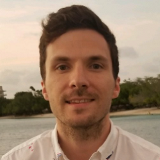
Kyle has led research for Sana’s Fusogen Platform since the foundation of the company. Currently Executive Director and Co-Head of Sana Innovation, Kyle oversees the research team driving advancement of the Fusogen Platform for in vivo delivery, including development of the lead in vivo CAR-T candidate. Prior to this he had been a Senior Scientist at Cobalt Biomedicine, a Flagship company.
Andrew Tsourkas, PhD, Co-Director, Center for Targeted Therapeutics and Translational Nanomedicine; Professor, Bioengineering, University of Pennsylvania
.tmb-0.jpg)
Andrew Tsourkas, Ph.D., is Professor of Bioengineering at the University of Pennsylvania. He received his Bachelor’s degree in Mechanical Engineering from Cornell University, his Master’s degree from Johns Hopkins University, and his Ph.D. in Biomedical Engineering from the Georgia Tech/Emory University joint Ph.D. program. He then conducted a post-doctoral fellowship in the Department of Radiology at Harvard University, before joining Penn in 2004. Dr. Tsourkas is currently the Co-Director for the Center for Targeted Therapeutics and Translational Nanomedicine and Co-Director for the Chemical and Nanoparticle Synthesis Core. He has over 100 peer-reviewed publications and was a recipient of the Wallace H. Coulter Foundation Early Career Award, the NSF CAREER Award, and is an elected fellow in the American Institute for Medical and Biological Engineering. Dr. Tsourkas founded AlphaThera in 2016. His laboratory develops targeted imaging and therapeutic agents, with a focus on nanotechnology and biologics.
Martijn Vlaming, PhD, Team Lead, Immuno-Oncology, ImmunXperts
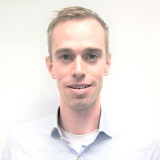
Martijn holds a PhD degree from the University of Groningen in the Netherlands with a focus on bispecific antibodies and CAR-T cell strategies. He joined ImmunXperts Immuno-Oncology team as a scientist in 2021 and has been leading the team since 2024.
Theresa L. Whiteside, PhD, Professor, Pathology, Immunology & Otolaryngology, UPMC Hillman Cancer Center, University of Pittsburgh Cancer Institute
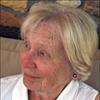
Dr. Whiteside received both her MA and PhD degrees in Microbiology from Columbia University, New York, NY. She is a Diplomate of the American Board of Medical Laboratory Immunology (1979). She was as a Fogarty Senior International Fellow at the Ludwig Institute for Cancer Research in Lausanne, Switzerland (1984-85). At the University of Pittsburgh, Dr. Whiteside rose through the faculty ranks to become Professor of Pathology with secondary appointments as Professor of Immunology and Otolaryngology (1989-present). She served as Director of the Immunologic Monitoring and Cellular Products Laboratory (IMCPL) at the UPMC Hillman Cancer Center for 25 years and is now its Interim Director. Dr Whiteside’s research has been focused on mechanisms of tumor-induced immunosuppression, cytokine networks, development of anticancer vaccines, immunobiology of human tumors and the role of natural immunity in the control of cancer progression. She studies mechanisms of tumor escape from the host immune system and the development of therapies designed to eliminate tumor escape. Most recently, she has been investigating tumor-derived exosomes (TEX) and their role in cancer-induced immune suppression. She has authored 615 peer-reviewed papers and 175 chapters and review articles. She received a Honoris causa degree in Medicine from The Poznan Medical University in Poland in 2011 and was awarded a Richard V. Smalley Memorial Award by the Society of Immunotherapy of Cancer in 2012.
Karrie Wong, PhD, Director Cell Therapy, Cell Therapy, KSQ Therapeutics Inc.
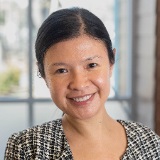
Karrie Wong, PhD is currently Senior Director, Head of Cell Therapy at KSQ Therapeutics. Dr. Wong leads the cross-functional development of KSQ’s engineered Tumor Infiltrating Lymphocyte (eTIL) programs as well as discovery research on the next generation of Oncology Cell Therapy. Her team’s research areas include target-discovery screens to enhance cell therapy efficacy and process innovation in TIL therapy manufacture. Prior to KSQ, Dr. Wong led research and development efforts on gene edited allogeneic NK cell therapy at Editas Medicine and IO drug discovery programs across different modalities. at Novartis Biomedical Research. Dr. Wong holds a PhD in Immunology/Regenerative Medicine from the University of Toronto and completed her postdoctoral training at Dana Farber Cancer Institute on cancer vaccine research.
Qiaobing Xu, PhD, Professor, Biomedical Engineering, Tufts University; Founder, Hopewell Therapeutics, Inc.
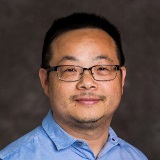
Dr. Qiaobing Xu is professor in Department of Biomedical Engineering at Tufts University. He is the founder of Hopewell Therapeutics. He obtained his B.S. from Jilin University, Changchun, China, and PhD from Harvard University, USA. He did postdoc training at MIT. His research group mainly focuses on developing novel synthetic biodegradable lipids for nucleic acid delivery, including gene therapy and gene editing. He is named the Pew Scholar for Biomedical Sciences from Pew Charitable Trusts. He received the several awards including National Science Foundation CAREER Award, Charlton Award from Tufts University School of Medicine. He was elected as a Fellow of AIMBE, class of 2020.
Rajbharan Yadav, PhD, Senior Principal Scientist, Development Sciences, Genentech
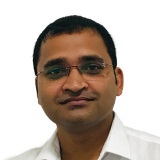
Raj Yadav is a Senior Principal Scientist in Development Sciences of Research & Early Development organization at Genentech, South San Francisco, California, USA. His current work at Genentech focuses on leading the pharmacokinetics and pharmacodynamics (PKPD) efforts to guide the design, delivery, and development of biologics molecules (bispecifics, fusion proteins, and other novel antibody-based therapeutic modalities) in early-stage research to clinical development. Raj holds a Ph.D. in translational PKPD, modeling and simulations from Monash Institute of Pharmaceutical Sciences, Monash University, Melbourne, Australia. He also obtained his M Pharm from NIPER, Mohali and B Pharm from UP technical University, Lucknow, India. In his previous role, he worked in DMPK research to translational PK/PD M&S at BMS R & D Center, Bangalore. He authored >25 publications in prestigious journals covering PKPD of mAb-based therapeutics, translational PKPD modeling and simulations, and optimization of clinical dosage regimens. Additionally, Raj serves as a reviewer of several reputed journals in the field and currently a member of scientific advisory board to the Journal of Pharmaceutical Sciences.
Jian Yan, PhD, Vice President, Research & Discovery, Geneos Therapeutics
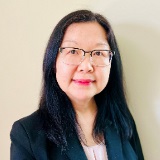
Dr. Jian Yan has more than 15 years of experience in leading preclinical research programs for the development of novel immunotherapies. Prior to Geneos, she served as the Vice President of Design and Product Development at NEUVOGEN, where she was responsible for development of next generation of therapeutic whole cell cancer vaccines. Prior to NEUVOGEN, Jian was a Director of Antigen Design and Discovery at Inovio Pharmaceuticals, where she provided leadership for novel therapeutic vaccine target evaluation and design to support the robust product portfolio of therapeutics in solid tumors. Jian received her Ph. D. in Molecular Biology and Genetics from Fudan University and started her career as a postdoctoral researcher at University of Pennsylvania. She has authored over 80 peer-reviewed publications in the area of immunotherapy. She is a co-inventor of more than 60 patents and was selected as one of the “Top 20 Translational Researchers” for 2016 and 2018 by Nature Biotechnology.
Jason Yu, PhD, Senior Postdoctoral Associate, Koch Institute for Integrative Cancer Research, Massachusetts Institute of Technology
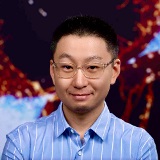
Jason Yu is a Convergence Scholar at the Koch Institute and as a senior postdoctoral associate at MIT. Mentored by Professor Scott Manalis, Jason investigates the influence of physical and chemical parameters on cellular responses, including T cell differentiation, microbiota antigen presentation, and tumor progression. With a PhD in Tissue Engineering and four years of postdoctoral experience in engineering physics at MIT, Jason specializes in the precise manipulation of the physical microenvironment of tissue culture to study the underlying mechanism. His interdisciplinary approach merges tissue engineering and physics to uncover novel insights into cell behavior and disease processes.
Jiyong Zhang, PhD, Vice President Head of Business Development, Business Development, Nona Biosciences

Jiyong has 10+ years’ experience on therapeutic antibody research and bispecific antibody engineering. Jiyong received his PhD in Pharmacology from Okayama University, Japan, and completed his postdoc training at Brown University, US. Prior to joining Nona, Jiyong has worked at Alexion and Abbvie, focusing on antibody discovery, engineering, and bispecific antibody R&D.
Nicholas A Zorko, PhD, Assistant Professor, Hematology & Oncology & Transplant, University Of Minnesota Twin Cities
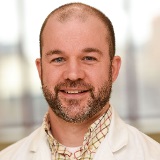
Nicholas Zorko is an Assistant Professor of Medicine at the University of Minnesota Masonic Cancer Center specializing in genitourinary oncology and cellular therapies. He treats a unique combination of patients consisting of both genitourinary oncology and bone marrow transplant/cellular therapy recipients. He completed his MD and PhD at The Ohio State University and his clinical residency and fellowship at the University of Minnesota. His translational laboratory focuses on the development of natural killer (NK) cell engager molecules and off-the-shelf, engineered NK cells to treat prostate cancer and other GU malignancies. He is a 2022 Prostate Cancer Foundation Young Investigator and the recipient of a United States Department of Defense Early Investigator Research Award. His clinical trial work includes several industry-sponsored Phase I immune engager and chimeric antigen receptor (CAR) T cell products to treat late-stage prostate cancers and other refractory solid tumors and a pending investigator-initiated NK cell engager trial.
Sjoukje van der Stegen, PhD, Research Fellow, Memorial Sloan Kettering Cancer Center

Dr van der Stegen received her PhD from King's College London, during which she developed the first in vivo model for CAR T cell induced cytokine release syndrome, indicating myeloid cells as the source of Interleukin-6. In 2013 she joined Michel Sadelain's lab at MSKCC, where she studies alpha beta T-cell lineage commitment in the in vitro differentiation of T cells from T cell-derived induced pluripotent stem cells.
Conference Programs
